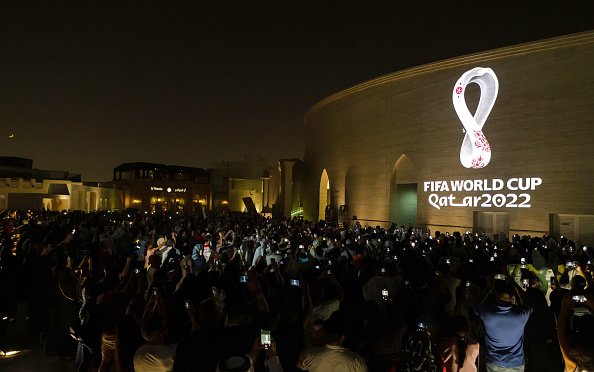Another month, another desperate attempt to push through FIFA’s biennial World Cup money-spinning scheme, as international football created problems once more.
The latest instalment saw FIFA president and puppet master Gianni Infantino claim it was more about protecting “the future of football” and less about having their showpiece event dominate every second summer.
How Do You Solve the Problems That International Football Creates?
The Problems International Football Creates
He went further. This was being done to include the whole world in the game and give “hope to Africans so that they don’t need to cross the Mediterranean in order to find a better life”.
It’s not quite Michael Jackson with Heal the World but it’s equally impressive lyrically, if only for pure ignorance and insult.
These comments, of course, were met with widespread scorn and condemnation from racism and ethics watchdogs, as well as anyone with a conscience.
A new low for an organisation that’s used Trojan horse tactics for decades to ensure their sphere of influence and bank balances are increased. But this was just too obvious.
FIFA have even got poor old Arsene Wenger on board as the chief of global football development. A man once universally respected for his views on the game is now helping drive this proposal, claiming opposition to the proposal is based purely on emotion.
It’s a sad day when one of football’s true aristocratic rebels is turning his back on what the game is about – emotion and passion – and defecting to the Death Star. Brainwashing and/or force control aren’t out of the question, however.
All in Favour? Not Quite
The opposition that Wenger speaks of comes from all corners.
UEFA and CONMEBOL, representing Europe and South America, have repeatedly rejected the proposal, with UEFA chairman Aleksander Ceferin going as far as to threaten a UEFA wide boycott of future World Cups. The good guy in this by virtue of being less bad.
It must be said that other continental governing bodies are in favour, given that it would allow for greater chance of participation for their member nations, many of whom haven’t competed thus far at the World Cup.
But let’s be honest, it’s hardly a World Cup if you don’t have Brazil, Argentina, Germany et al. And a name change might be required if two continents are MIA.
Player Hatin’ Don’t Stop
Players, you know the ones actually playing these events, past and present have voiced their displeasure. Both current French superstar Kylian Mbappe and former Germany captain Philip Lahm have raised concerns that a biennial tournament will lead to a reduction in quality and the significance of wins, such would be the overkill.
Think of Pele’s three triumphs, Maradona in ’86, Ronaldo’s redemption in ’02. All played a huge role in the legacy of these players, but would they mean half as much if the gap between tournaments was halved?
On the flip side, arguably the two greatest players of all time, Lionel Messi and Cristiano Ronaldo, have never won it. It adds to the debate and discussion around them when compared to the three mentioned above, and shows the difficulty at hand.
Like the Olympics, the World Cup is a special event and the build-up, hype and anticipation for the years preceding is part of the magic, as well as the boom or bust nature to it.
Oh yeah, and both Mbappe and Lahm have won the World Cup, the last two in fact. So maybe they’re worth listening to.
An Unlikely Ally is Found After the Fans “Speak”
The fans want it though! Well, that’s if you believe a YouGov survey conducted by, you guessed it, FIFA which allegedly questioned 23,000 people from 23 countries across the globe. The results were resoundingly in favour of a biennial tournament but the questions and further details have not been released. Sue Gray eat your heart out.
These “findings” directly contradict those of a campaign conducted by Football Supporters Europe, which showed 58 fan groups view that the tournaments would be devalued and the club game diminished.
Even Sepp Blatter, ex FIFA president and life-long charlatan, is against the proposal. Although that’s probably because he’s bitter he didn’t think of it first or previously suggested it and knows it’s a non-runner.
Common Ground?
So the battle lines have been drawn but there’s one thing most of us can agree on: change is needed to the current football schedule, both at club and international level.
There’s a multitude of reasons for this but oft-forgotten by the suits and swindlers is player welfare. Many, most recently Jordan Henderson, have said it’s rarely taken into account and it’s almost accepted that players should fly around the world to play wherever and whenever because of the wage they earn.
Of course this is unlikely to be acknowledged by the game’s power brokers but let’s give it a shot.
A New Proposal is Put Forward for International Football
With the current match calendar expiring in 2024, here’s an alternative to the current and proposed football ecosystem.
We’re already preposterously ripping up the script for the Qatari World Cup so why shouldn’t there be a full and proper revamp of the entire schedule in the form of a complete separation of the club and international schedule, of church and state.
The club season would run continuously from September to April bar a winter break like the one just gone.
The international football season would be transformed into a summer sport, taking place for six to eight weeks at some point from mid-May to mid-July. This would give FIFA and co. the biennial showcase and unadulterated attention they so blatantly crave.
How Would This Be Feasible for International Football?
The “Big Five” leagues in Europe run this season from early to mid-August until the weekend of the 20-22 May, with the club season ending on Saturday 28 May with the Champions League final. This is with four international breaks totalling eight weeks, and a possible 16 games across all competitions.
These eight weeks would instead be used in the summer months and allow the club season to start a month later and end a month earlier, give or take a week either side.
What Are the Benefits of This?
Firstly it would bring an end to the most dreaded term in sports – ‘International Break ™’.
No longer would we live in fear. No longer would the club season be put on ice just as it was heating up. There’s currently a break in September, October and November, which allows for little to no flow to the first half of the season.
International breaks during the season are seen as a purgatorial nuisance – a complete antithesis of the feeling around the EUROs last summer. Making every summer an international football extravaganza, either with qualifiers or tournaments, would hopefully lead to more excitement and engagement across the board.
Because let’s not kid ourselves, no one is eagerly awaiting a qualifier vs Andorra on a cold Tuesday night in November. But a summer game – better and brighter evenings, and a welcome excursion.
Club vs Country – A Rivalry as Old as Time Itself
A split might even lead to détente between clubs and countries. There would be a benefit for both to international and club windows. Countries wouldn’t have players being pressured into late withdrawals. Clubs wouldn’t be concerned about their star players playing on a Thursday night in Mali with a Saturday game in Manchester. Chartered planes would be left grounded.
For both it would also mean lengthy uninterrupted seasons for managers with their squads. At international level, this is only seen during tournaments, but it would allow for team spirit to be fostered, unity to be formed and tactics to be worked on.
It’s also hard to think any player would reject this in favour of jumping in and out of time zones at short notice.
Speaking of player welfare, a proper off-season could be fitted into this with players granted a real holiday before it starts all over again – gone would be the days of two seasons melding into one.
Potential Issues
Of course all of this wouldn’t be without issue, what is?
What would international managers do all year? Well, you could have the case that some double up as club managers or assistants – think Fergie managing Aberdeen and assisting with Scotland. It might also mean more top managers getting involved with countries – Klopp’s Germany vs Pep’s Spain/Catalonia anyone?
The African Cup of Nations is a perceived “issue” as stands so it would have to be fitted in somehow and somewhere. And rightly so, more respect needs to be shown to a continent that’s providing so much to the rest of the footballing world.
Oh won’t somebody please think of the Nations League? To be brief, no. It’s largely unwanted and unrequired, and has no place in this fantasy footballing utopia.
A Galaxy Far Far Away
Fantasy. Utopia. Sounds good. Which likely means there’s zero chance of it happening.
Oh well, guess FIFA know best. The Mars 2042 World Cup sponsored by Tesla here we come.
Main Photo
Embed from Getty Images






